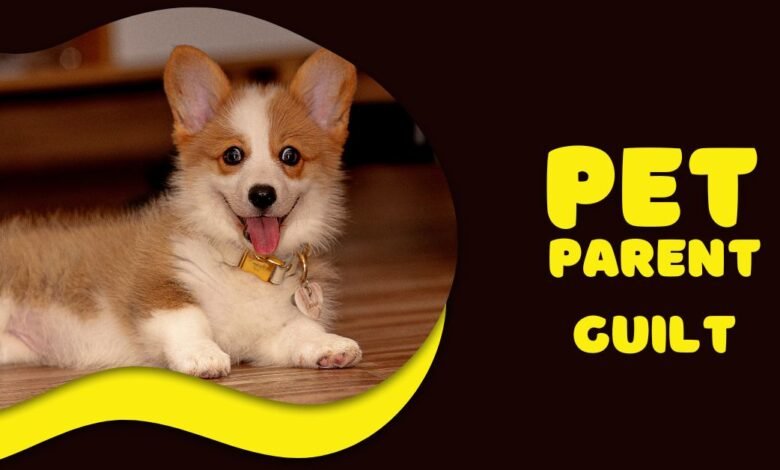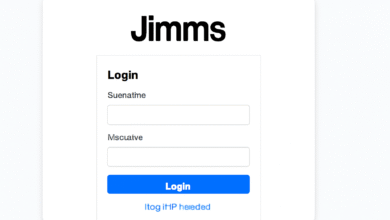Pet Parent Guilt and How to Emotionally Navigate It Well

Pet parent guilt is a deeply emotional experience shared by many individuals who care for animals, often manifesting as a constant worry that they are not doing enough for their pets. This feeling stems from a genuine sense of responsibility and love, as most pet owners want nothing more than to provide their furry companions with the best life possible. Whether it’s being away from home too long, missing vet appointments, or feeling uncertain about training methods, guilt can creep in and settle into everyday routines. It is an emotion that often stems from the high expectations pet owners set for themselves, influenced by social media portrayals of “perfect” pet parenting and the human tendency to compare their efforts with others.
How Daily Life Triggers Pet Parent Guilt
Modern lifestyles can unintentionally contribute to pet parent guilt, as the demands of work, family, and social obligations frequently conflict with time set aside for pets. Many pet parents find themselves rushing through morning walks, skipping play sessions, or delaying grooming appointments, only to feel overwhelmed with regret afterward. These missed moments, although sometimes inevitable, are often magnified in the minds of caring pet owners, creating a sense of failure. The guilt can be especially sharp for those with young pets requiring extra attention, or senior pets needing consistent care. Over time, these emotional triggers can build up, causing stress and diminishing the joy of companionship that pet ownership should bring.
Social Media and the Pressure of Perfection
Social media plays a significant role in amplifying pet parent guilt by projecting images of ideal pet care routines, perfect home environments, and well-behaved animals. Influencers and content creators often share polished moments of life with their pets, setting unrealistic standards that everyday pet parents may struggle to meet. This constant comparison can make pet owners feel inadequate, even if they are doing their best within their means and schedule. The curated perfection seen online can create a distorted sense of what responsible pet care should look like, causing guilt to arise from completely normal and harmless missteps. This emotional weight may not reflect reality but still influences a pet owner’s mindset.
The Emotional Toll and Psychological Effects
The emotional toll of pet parent guilt can be significant, impacting mental health and well-being. Guilt often brings with it anxiety, frustration, and sometimes even depression, especially when owners feel like they are falling short despite their best intentions. This ongoing emotional burden can lead to burnout, where caring for a pet feels more like a source of stress than joy. In extreme cases, it may cause pet parents to question their abilities or consider whether they are fit to continue caring for an animal. Recognizing and addressing these feelings early is essential in order to maintain a healthy relationship between the pet and the owner and to avoid long-term emotional consequences.
Managing Expectations with Realistic Goals
One of the most effective ways to combat pet parent guilt is to set realistic and achievable goals based on one’s own lifestyle, resources, and time constraints. Accepting that perfection is unattainable helps shift the focus from guilt to gratitude for the moments shared with a pet. Instead of comparing oneself to others, pet owners should consider what makes their pets happy and healthy within their personal circumstances. A ten-minute walk in the morning, an extra cuddle at night, or even a special treat can go a long way toward building a strong and fulfilling bond. By letting go of unattainable ideals, pet parents can embrace their roles with confidence and emotional clarity.
The Importance of Quality Over Quantity
When it comes to bonding with pets, the quality of time spent together often outweighs the amount of time. Guilt may arise from feeling like there’s never enough time, but even brief, meaningful interactions can make a difference. Engaging in focused play, offering attentive grooming, or simply sitting together quietly builds trust and emotional connection. Animals are highly intuitive and tend to respond more to the attention and affection they receive than to the duration of time it takes. Understanding this can help pet owners feel more secure in their care routines and reduce the pressure to constantly do more.
Building a Reliable Support System
Pet parent guilt can feel isolating, but many others experience similar emotions. Connecting with fellow pet owners through community groups, forums, or pet care meetups can offer perspective and reassurance. Sharing stories, exchanging tips, and offering encouragement help build a support network where guilt is replaced with understanding and compassion. This sense of community can be especially beneficial for first-time pet owners who may not yet feel confident in their approach. Engaging with others who validate these feelings can reduce emotional strain and reinforce the idea that doing your best is more than enough.
Professional Guidance for Emotional Support
Sometimes, pet parent guilt becomes so overwhelming that it interferes with daily life or diminishes the joy of having a pet. In such cases, seeking professional guidance can be incredibly helpful. Pet behaviorists, trainers, or even therapists who specialize in animal-human relationships can offer strategies to manage both practical pet care concerns and emotional challenges. Consulting a veterinarian for routine care guidance can also reduce uncertainty and alleviate guilt stemming from health worries. Professional advice helps pet parents feel more capable and informed, creating a foundation of knowledge and reassurance that empowers them to care for their animals without constant second-guessing.
Learning From Mistakes and Moving Forward
Every pet parent makes mistakes, whether it’s missing a scheduled appointment, feeding the wrong food, or reacting impatiently during training. Instead of dwelling on errors, it is healthier to view them as learning opportunities. Recognizing missteps and adjusting behavior accordingly demonstrates growth and genuine concern for the pet’s welfare. Forgiving oneself and moving forward is a vital step in overcoming guilt and developing a more compassionate approach to pet parenting. Animals are remarkably forgiving, and the bond between pet and owner often remains strong despite occasional mishaps. Growth through experience can deepen that bond over time, reinforcing trust and emotional connection.
Pet Parent Guilt in Special Circumstances
Certain life events such as moving, illness, financial stress, or changes in work schedules can intensify feelings of guilt among pet parents. In these situations, it is common to worry about neglecting a pet’s emotional or physical needs, even if the circumstances are beyond control. Acknowledging these temporary challenges and making small adjustments can help minimize disruption for the pet while easing guilt for the owner. Simple acts like maintaining feeding schedules or offering a comforting presence during tough times can go a long way. Understanding that temporary limitations do not equate to failure helps pet parents remain grounded and emotionally resilient.
Reaffirming the Human-Animal Bond
At the core of pet parent guilt is often an intense emotional bond between humans and their pets. This connection is built on mutual affection, companionship, and loyalty. Pets rely on their humans not just for care but for comfort and safety, and in return, they offer unconditional love. Reflecting on this bond can help put guilt into perspective. Recognizing the trust and affection that pets show daily reminds owners that their efforts, even when imperfect, are seen and appreciated. By focusing on this emotional reciprocity, pet parents can feel reassured in their caregiving roles and more connected to their pets’ needs and happiness.
Conclusion
Overcoming pet parent guilt involves a conscious shift from self-criticism to self-compassion. This emotional adjustment allows pet owners to appreciate their efforts, celebrate small victories, and accept limitations without harsh judgment. Practicing mindfulness, acknowledging good intentions, and celebrating meaningful moments can transform guilt into gratitude. Pet parenting is a journey filled with learning, adapting, and growing, and it is important to honor that process. By replacing guilt with compassion, pet owners create a more balanced and joyful environment where both pets and humans thrive emotionally and physically.
FAQS
What is pet parent guilt?
Pet parent guilt is the emotional feeling of not doing enough or feeling inadequate in caring for a pet.
Is it normal to feel guilty as a pet owner?
Yes, many pet owners experience guilt at times, especially when life becomes busy or unpredictable.
How can I overcome pet parent guilt?
Focusing on quality time, setting realistic expectations, and practicing self-compassion can help reduce guilt.
Do pets know when we feel guilty?
Pets may sense our emotional state but do not interpret guilt the same way humans do; they respond to affection and consistency.
Can talking to others help with pet parent guilt?
Yes, sharing experiences with other pet owners can provide emotional support and practical advice.




